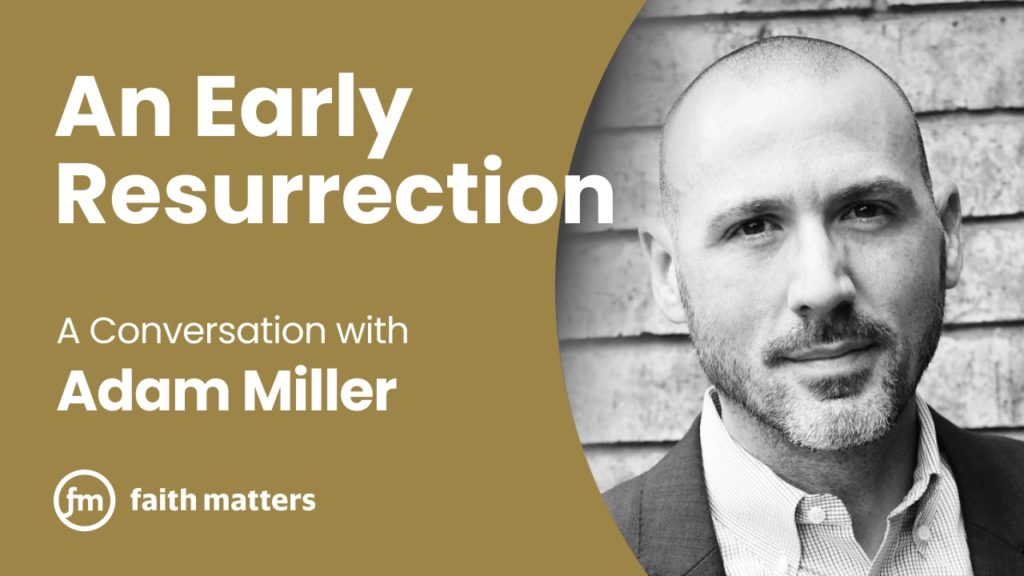This is our latest installment in our Big Questions Project.
The Book of Abraham looms large in the minds of many who are in the midst of faith wrestles. What are the issues, and how do they impact one’s faith in the Restoration? In what follows, I suggest a few considerations that may help ratchet down the alarm some feel. Sometimes, a good shock to the system is helpful in excising needless baggage and focusing with greater precision on what the object of our faith is, and is not.
Haven’t we been here before?
The myth is pervasive that the (re)discovery of portions of the Joseph Smith Egyptian papyri in the Metropolitan Museum in 1967 gave scholars the first chance to examine original fragments and compare them with Joseph Smith’s translation—and the results were catastrophic. That narrative is considerably off the mark in a few crucial particulars.
Over a full century ago, several scholars weighed in on the accuracy of Joseph Smith’s “explanations” of some Egyptian characters. They did not need originals, since the Church had published copies of the three facsimiles, together with Joseph’s “explanations.” Their universal verdict was that Joseph had failed as a scholar of Egyptian. What is remarkable—astonishing even to a modern Latter-day Saint—is that Church leaders and intellectuals readily accepted their verdict, even publishing the devastating reviews. Junius Wells quoted the famous Wallis Budge’s appraisal (“bosh,” “idiotic”) and Henry Woodward’s (“all rubbish!”), before proclaiming that this “inquiry with its responses from Egyptologists of eminence . . . at least serves to show that we have not been lax, nor afraid to learn from whatever light the wisdom of the world might throw upon the illustrations of the Book of Abraham and their translation.”
Why were nineteenth-century Saints so little fazed by such verdicts?
Among the church’s responses published in a 1913 church periodical, Book of Mormon scholar J. M. Sjodahl noted matter-of-factly that “if a mistake should be proved in the Book of Abraham translation of the Egyptian documents . . . such a mistake might be due to the channel through which the inspiration flowed.”
“The translations Joseph Smith has given to the world,” acknowledged B. H. Roberts, were “confessedly not by scholarship but by inspiration.” Smith’s biographer John Evans wrote that “it does not matter . . . so far as philosophical or practical purposes are concerned, where or how he got them. The only questions we may properly ask about them [is] are they true?”
These Saints knew what modern Saints and critics alike seem to have forgotten; revelation is more art than science. When Joseph prepared his revelations for publication (as the Book of Commandments and Doctrine and Covenants), he invited a half-dozen colleagues to help him edit and revise (their contributions may be seen in the full color edition published by the Church a few years ago). Clearly, Smith considered revelation to be a process susceptible of error, imperfection, and improvement—a prolonged struggle to capture in words those images, thoughts, and impressions borne of the spirit.
But is it scripture?
It is possible that we do not have the original papyri from which the Book of Abraham was produced—though many scholars think we do. So we can say almost nothing for sure about the source of the words that now constitute that narrative. Can the Book of Abraham pass the scripture test if it was not written by Abraham or produced in the manner Smith thought he was producing it?
One might find an imperfect analogy in the New Testament. Four of the New Testament epistles often considered to be written by Paul (Ephesians, the two epistles to Timothy, and Titus) were almost certainly not written by the apostle. And, of course, we have no idea who wrote Hebrews and many other Bible books. And yet, Christians (and Latter-day Saints) continue to a cherish them as the Word of God. It’s not a perfect analogy to the Book of Abraham obviously, but the value of these New Testament books is not dependent on, or grounded in, their having been written at the time and by the author tradition assigns them.
We cannot know the exact origin of the narrative related in the Book of Abraham, and we cannot trace the process by which it passed through the mind of Joseph and onto the page. However, by pronouncing that text a part of the Latter-day Saint canon in 1880, the church leadership was making a declaration about its value to the faith community and the inspiration manifest in the final product.
What is its value?
The Book of Abraham provides clarification and elaboration of a number of key Restoration tenets. Coming at the end of Smith’s life, these particular scriptures helped complete his temple theology and flesh out the cosmic drama that provides Mormonism with its comprehensive human saga.
Premortal existence was already well establishing in Smith’s thought by 1832; in the Book of Abraham, we see ourselves in a primordial setting, acting as independent agents, participating in the counsel and decisions that resulted in our mortal embodiment.
As evident in a Creation account wherein the Gods work cooperatively, councils are introduced as the mode of government pertaining to Divine Beings. Joseph was, in fact, at this moment working to shift the burden of church leadership more emphatically from himself to presiding councils, and that principle of shared governance (in which women are increasingly participating) continues to unfold today.
The book also establishes priesthood as an eternal power, one that precedes the organization of the earth itself. It thus is not a temporary dispensation of ecclesiastical power effective in a mortal sphere, as it is for Catholics. It has cosmic, eternal significance, is participated in by women as well as men, and finds its fullest expression in those covenants and promises and binding rituals of the temple.

But does God really communicate so mysteriously?
Sometimes, yes. The apostle Paul relates an account of an individual (himself?) having a visionary experience, “whether in the body, or out of the body, I cannot tell.” His confession is telling.
For those open to the divine voice, God speaks through manifold means, which often surprise and confound us. With a voice of thunder, or in a still small voice. In waking visions and through dreams in the night. Scriptures unfold themselves to us as we liken them to ourselves, and a prophet’s words may pierce our heart as if heaven sent and aimed.
Prophets may find themselves visited in a sacred grove like Adam in the Garden; or they may seek understanding through study, and prayer, and linguistic application. Despite his efforts, Joseph Smith could not decipher the Egyptian language, but his efforts to do so are nothing if not impressive. At the end of his years of wrestling to decipher ancient manuscripts, he produced a text through means he may not himself have fully understood, any more than Paul’s anonymous visionary. This is a deal-breaker for some in the faith community. That is, to my mind, unfortunate. “God dwells in everlasting burnings;” Job’s presumption to fit God’s behavior into tidy predictable categories was personally catastrophic, and Moses was left to marvel at his finitude before the infinitude of the cosmos and its Creator. In our suspicion of creedal irrationality, we as Saints have perhaps diminished God’s majesty by our glib familiarity, and thought to tame and domesticate the blinding light into a pleasant, non-threatening glow. I want to be comfortable in a tradition where the novel and the unexpected and the indecipherable can still erupt. And I cannot help but admire a figure of Joseph Smith’s insatiable appetite to penetrate the veils of heaven and of history, the intellectual and spiritual energies with which he pursued his task, and his indifference to the uneven results of his own ongoing yet ever incomplete explorations.
We like our religious narratives to be simple and straightforward. Institutional pressures to convert and maintain faith move in the direction of uncomplicated simplicity. But God’s workings invariably disappoint such expectations.
There’s an interesting corollary in modern science. As science has probed both the wider cosmos (Einstein’s relativity) and the subatomic realms (quantum mechanics), we find that reality defies common sense at every turn. Quantum theory, for example, reveals that nature at its most fundamental level is “absurd from the point of view of common sense” (Richard Feynman). Our great physicists had to go beyond reason and mathematics and open their imaginations before they could create revolutionary new paradigms.
The space-time foundations in which our senses are grounded are only a slice of reality; many physicists now argue that there may be as many as eleven dimensions to reality—only four of which are accessible to our minds and senses. Newton’s universe, once stable, coherent, and predictable, has become foreign, indecipherable, and saturated in mystery and paradox.
Since God inhabits and comprehends these other realms, it hardly seems reasonable to expect that our transactions with the Divine should be any less unexpected and remarkable. Perhaps authentic encounters with the divine will always be disruptive of both our expectations and our paradigms.



